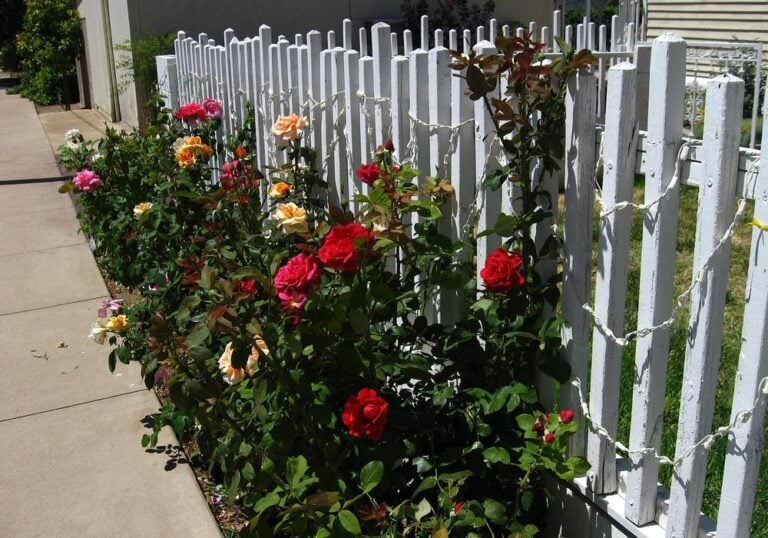Spruce Up Your Garden with the Best Bermuda Grass Seed
Our recommendation for best Bermuda grass seed is Scotts EZ Seed Patch and Repair Bermuda Grass, which combines seed with the perfect fertilizer and mulch to create a lush, green lawn in a variety of soil types and regions. This mix helps weigh down Bermuda grass seeds so they are less prone to wash-away from rain, hilly areas, and wind. Additionally, the fertilizer and mulch will help your Bermuda grass get off to an optimal start, even in areas with excessive heat. That’s our favorite, but we’ve got some other great picks for you below.
Our Top 4 Best Bermuda Grass Seed Picks
[wptb id="8283" not found ]What Makes Bermuda Grass Different From Other Grasses?
Bermuda grass is known as one of the toughest grasses. It’s drought-resistant and can grow in a variety of locations and types of soil. When it’s maintained properly by watering, fertilizing, and mowing, it can create a hardy turf that’s perfect for sporting fields, golf courses, parks, and more.
Bermuda grass tends to look a little different than other grasses, too. The above photo shows a close-up of Bermuda grass and its unsightly seedheads with several prongs. Bermuda grass commonly sprouts these seedheads randomly throughout its green blades, but you can remedy this with consistent mowing.
Advantages of Bermuda Grass Lawns
According to David M. Kopec, a turfgrass specialist, Bermuda grass is a grass with several advantages. This type of grass has an extensive root system that allows it to grow in a variety of soils and climates. You may notice Bermuda grass turn brown in dry weather, but it quickly reverts to lush green blades with purple tips after a thorough watering or rainfall.
Bermuda grass grows rapidly, which makes it perfect for homeowners who want a tough lawn in a short amount of time. Since it spreads so quickly through its root system, it helps to crowd out weeds in your yard with its dense sod formation.
Additionally, bermuda grass needs very little water, so it’s perfect for those who live in regions with little rainfall. It also resists extreme heat and cold well, resists several insects and disease, and works to cover its own bare spots quickly.
Disadvantages of Bermuda Grass Lawns
Of course, some disadvantages come with using bermuda grass, too. In fact, its extensive, fast-growing root system can become a disadvantage to those who have gardens. If you aren’t careful about your placement of Bermuda grass, you may end up with it invading your low-lying plants, like strawberries.
Bermuda grass can also be very difficult to kill, if needed. So, for instance, if your bermuda grass does happen to take over your flower beds, you may have a difficult time getting rid of it. In this case, a herbicide may be in order, but you’ll have to find one that won’t affect your plants. You may even need to apply it several times over the course of a month to kill unwanted Bermuda grass (source).
Where Does Bermuda Grass Grow Best?
You’ll find that many southern regions prefer Bermuda grass for lawns. It’s a warm season grass, which makes it perfect for regions with warm weather for most of the year.
Additionally, since Bermuda grass can handle drought conditions and salt water intake, areas with little rainfall, tropical, and coastal areas can still grow beautiful lawns of Bermuda grass. An exception to this is the state of Florida, which is prone to sting nematode infestations, a pest that Bermuda grass can not seem to ward off.
Bermuda grass does best where it has plenty of room to spread its root system. Large yards are the perfect setting for Bermuda grass. If you have several garden areas, Bermuda grass may not be your best choice, since it can invade your gardens. Consider installing raised beds that will keep Bermuda grass separate from your plants.
Bermuda grass needs full sun, so shady yards aren’t ideal. Since this type of grass doesn’t need a lot of water to thrive, full sun helps dry excess water to prevent disease and wilting. If your yard has low-lying areas that pool water, your Bermuda grass may not survive in those areas where water doesn’t drain well.
However, there are hybrid varieties of Bermuda grass that adapt well to conditions common Bermuda grass doesn’t. Hybrid varieties can survive colder temperatures, are more resistant to flooding, and may lose less green color through drought conditions (source).
Growing Bermuda Grass Successfully
You should plan on planting Bermuda grass in the spring, after temperatures remain consistently warm in warm-weather areas. Fortunately, you won’t have to do much soil preparation, as Bermuda grass tolerates most types of soil. Consider purchasing a Bermuda seed mix of different common seeds and hybrids to have the best chance of germination.
However, you will want to rake your area you’ll be seeding to make it even and smooth for even distribution of seeds. Gardening Know How suggests using one pound of Bermuda grass per 1,000 square feet of yard space, since it spreads quickly on its own.
Use a spreader or your hands to spread seed going lengthwise, and then crosswise, for even distribution. Your seeds will germinate anywhere from 5 to 14 days. Overseeding is usually not necessary for Bermuda grass, as it works hard to fill in its own gaps.
It’s also a good idea to have a solid soil in place already. Here’s a good soil guide to get you started.
Caring for a Bermuda Grass Lawn
Bermuda grass is one of the most low-maintenance types of grasses, making it perfect for those who don’t want to spend a lot of time caring for their lawns.
Still, there are a few important things to do to care for your Bermuda grass lawn. This video by Sod Solutions explains the three most important summer maintenance tips for Bermuda grass:
https://youtu.be/door-vGkULQ
A slow-releasing nitrogen fertilizer is ideal for this type of lawn, which you should use about 6 weeks after planting. If you don’t fertilize at this time, fertilize in the summer.
Bermuda grass needs only one or two deep waterings each week, depending on the rainfall and humidity in your area. Allow your grass to reach about two inches before mowing.
Our Recommendation: Scotts EZ Seed Patch and Repair Bermuda Grass
Scotts EZ Seed Patch and Repair Bermuda Grass is the perfect, guess-free solution for those who want to grow Bermuda grass. This mix contains mulch, fertilizer, and Bermuda grass seed, perfectly mixed to leave the guesswork off of you.
This particular blend is helpful for those in windy areas, such as coastal regions, because the mulch helps to firmly root the seed in your soil.
You’ll also benefit from this blend if you’re planting the grass on a hilly area or an area prone to seed wash-away from rainfall or water drainage.
Although Bermuda grass typically grows in a variety of locations, excessive heat can prevent it from germinating or turning the lush green that you want from your lawn.
Since this formula has mulch and fertilizer added, the seed remains more protected from high heat and, therefore, can grow in more locations than regular Bermuda grass seed.
After planting this seed, give it a thorough watering. Continue to keep your seed well-moistened until grass blades grow about two inches tall, and then you can resume a normal watering schedule.
Since this seed is mixed with other components, you will need to purchase more than you would seed alone. Scotts recommends 3.75 pounds of this mix for every 85 square feet of yard space.
Photo by Matt Lavin licensed under CC BY-SA 2.0




